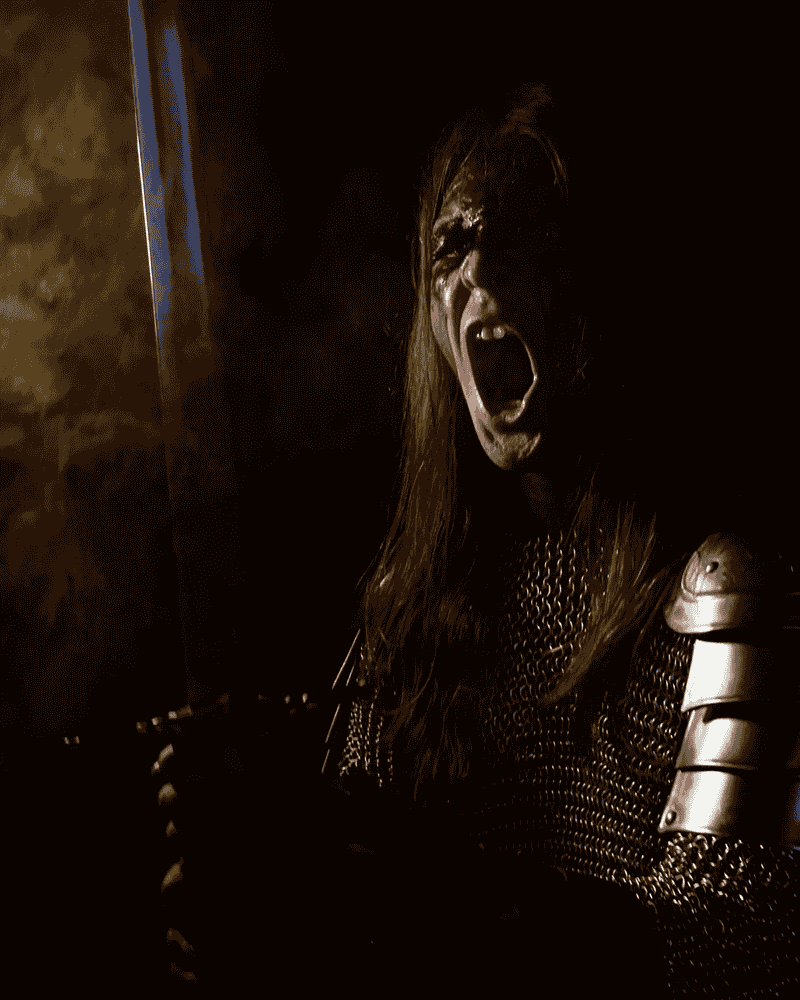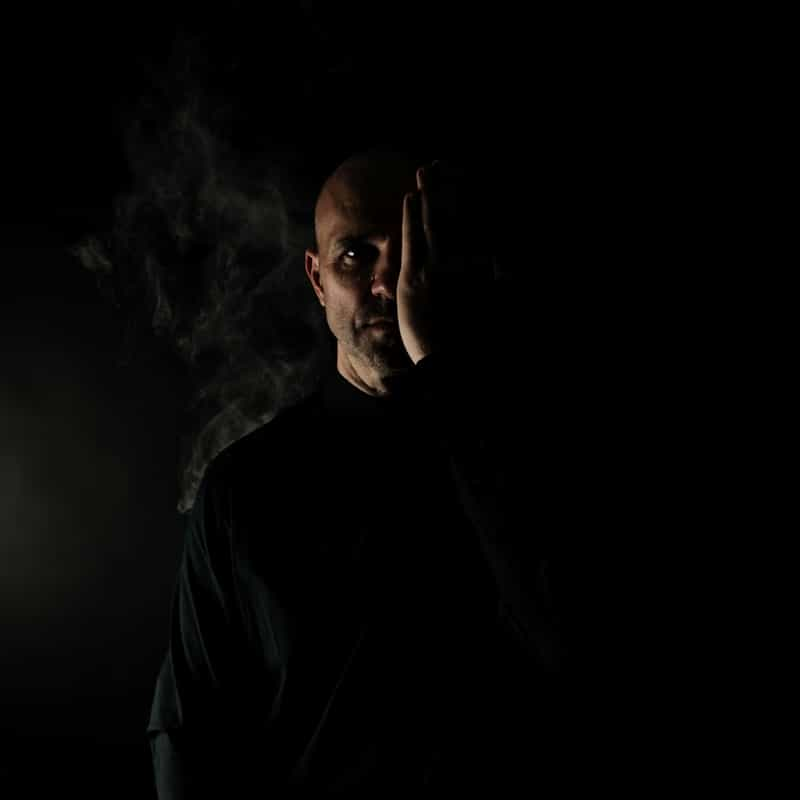Vindalf #Interview
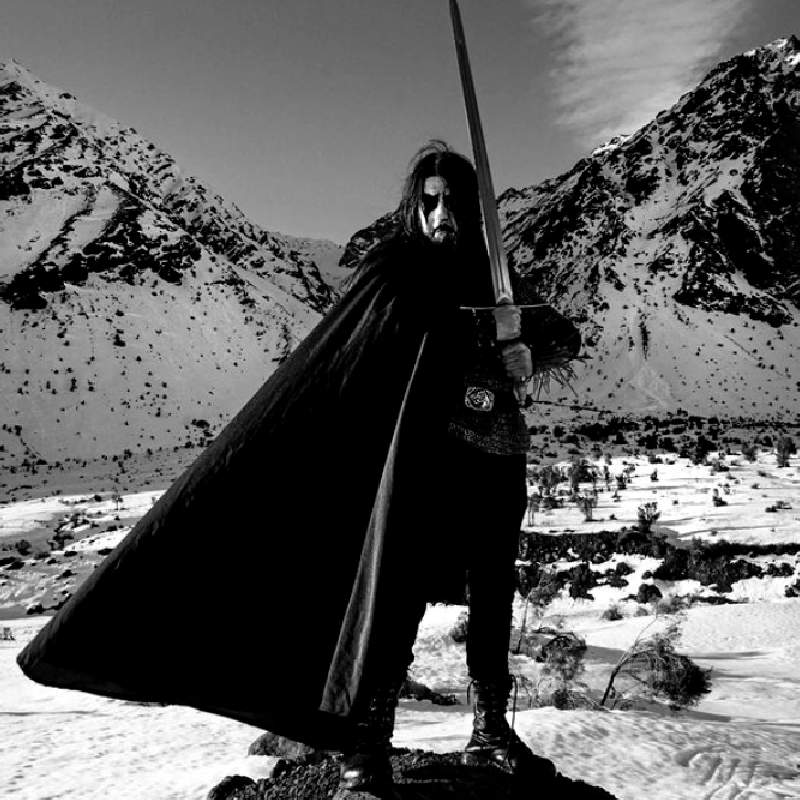
Coming from the depths of the black abyss, Vindalf is the kind of band that manages to evoke the darkest atmosphere and deepest cutting cold. The man behind the project, Count Vindalf, an enigmatic, yet obviously incredibly dedicated musician, has agreed to answer a couple of questions, approaching topics such as his musical background, the artistic direction of Vindalf, his latest record, and everything inbetween.
Greetings, and thank you for agreeing to this interview. “Undying Order of the Black Flames” has been out for a few weeks now, and things seem to be looking up for Vindalf. What has been the general response to this record, and what do you think it represents in Vindalf’s Journey?
First of all, thank you very much for the consideration!
Undying Order of the Black Flames has been the album that has generated the most anticipation among Vindalf’s faithful and closest followers so far. Expectations grew from the moment the album’s name was revealed, and they increased significantly when the first single was released, sparking even more interest.
The album was received just as I expected: full of positive comments and with a highly favorable response from genre purists. I am immensely grateful for that.
In addition to the positive reviews and feedback, the pre-sales and physical sales of the release have been successful, both domestically and internationally.
The connection behind this release is somewhat difficult to explain. I feel that I did not create this album; rather, this album created me, marking a before and after in what Vindalf was and will become. It immortalized war hymns that will forever resonate in what is to come and in what has been. It represents a pure connection between Vindalf and the insignificant mortal behind the project.
Undying Order made me realize that Vindalf is much more than a musical project or a black metal band. It is a true connection to the darkest and purest emotions a kind of god or powerful external force that will only cease to exist when I die.
Ever since you started this project back in 2021, you have always included dungeon synth elements into your black metal, with “Entrance to the Catacombs” being a purely synth album. What determined this musical direction, and how do you balance these two styles when writing songs?
Entrance to the Catacombs is a release in complete homage to the early days of Vindalf, even before it could be considered a “musical project.” At that time, dungeon synth was the only source of creation I wanted to explore, without abandoning the darkness that was always present.
For me, black metal and dungeon synth have always shared a deep connection—a mystical and immortal alliance to which I have always been a devoted follower. The mystical and magical essence of the unknown realms of dungeon synth, combined with the purity and darkness of black metal, grants both equal importance and purpose in Vindalf when creating a mystical, shadowy, and pure atmosphere.
Preserving the realms of black metal and dungeon synth has been and will be the path I intend to follow until the end of days, for without the precious dungeon synth, Vindalf would not be what it is at all.
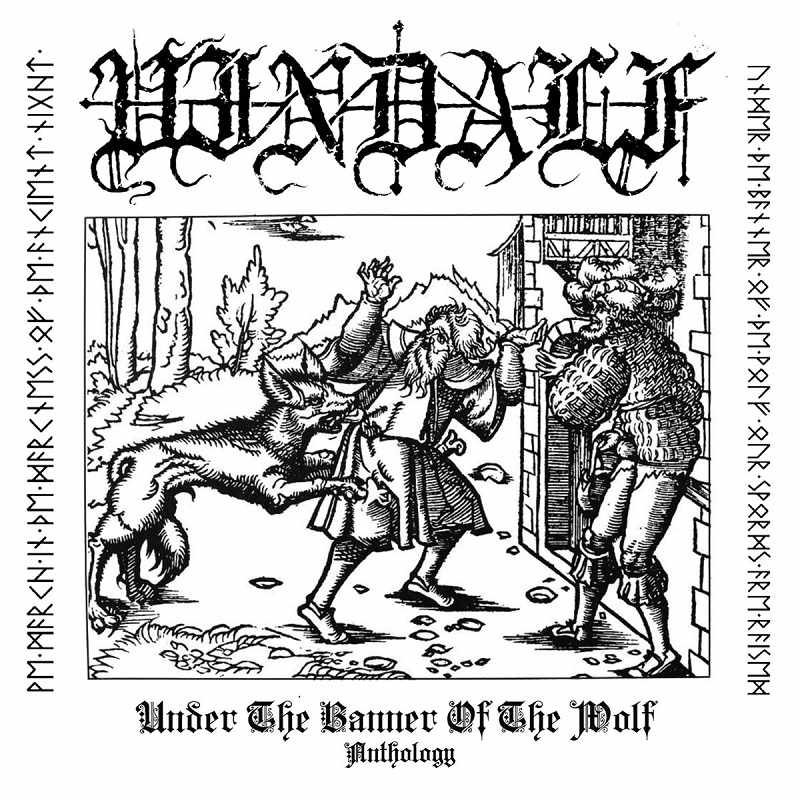
Vindalf is also known for its cold, harsh sound that sticks very closely to the original formula of raw black metal. Does this come from purely a manifestation of the self, or do you also relate to the idea of anti modernism in black metal?
Vindalf has always been and will continue to be a manifesto against all forms of “modernity,” whether that means the “good or new sound” or polished production, rejecting trends and fashions that might affect the genre. The objective is to keep alive the flame that was once ignited in ancient times, preserving the pride of the old, dark, and impious movement.
Vindalf is and will remain the absolute contemplation of the purity and darkness of ancient days, maintaining a raw sound and, of course, setting aside refined production. For me, this is the correct way to create and sustain this cold and dark realm, just as it once was.
Your home country of Chile is well renowned for having extremely dedicated metal fans and also musicians. Has your background affected your approach to music, and if so, in what way?
I have always been a complete admirer and devoted follower of music, from a very young age, both as a musician and as a collector, often viewing it as a sacred study. From it, I have not only gained knowledge but also learned to understand music in its various facets. All of this comes thanks to my parents, great connoisseurs and admirers of music, who filled my childhood with it.
Since I was very young, music has been the only connection and art through which I could express my different emotions. In its raw and pure essence, it has allowed me to communicate what words could not say. For me, it is the form of unification I consider most important in general terms. It is a bond that I consider a part of me; thanks to my roots, music is the only thing I have and the only thing I am, the only thing I want to be.
Let’s go into the history of Vindalf. How did this project came to be, what would be some important moments in its history, and what did it mean to you as a musician over the course of the years? Looking back on older releases, is there anything you think you could have done differently?
Remembering how Vindalf came to light is like thinking literally of a time in the past, during the cold days of winter in 2014, when the first flame of inspiration was born with the purpose of carrying out a project where I could create, liberate, or represent the most essential: the purest and most inner feelings.
For a long time, Black Metal accompanied me in various ways, and I felt it was the art that combined all that darkness and purity, transforming them into something truly unique. I wanted to create, or in some way, honor what I had heard for the first time: a feeling of unification with the innermost self, an absolute contemplation of the inner nature, an absolute contemplation of darkness, and a tribute to the gods. Something that only Black Metal could achieve.
As I mentioned earlier, at one point Vindalf stopped being a simple musical project and transformed into something profoundly important, something that turned my life as a musician upside down in every way. It became a constant study, externally and internally.lLooking back, I truly wouldn’t change anything. All the steps, both good and torturous, those moments that turned into a constant self-sacrifice, forged what Vindalf is today.
Musically, of course, there are things I’m not completely satisfied with to this day, like demo releases and such, but they are nothing more than a lesson. Without the past, neither the present nor the future exist.
As is the case for many black metal artists, you often draw inspiration from themes such as nature, medieval nature, and fantasy lore, which is showcased both in the song and album titles of Vindalf and the way you present yourself in promotional pictures. What drew you to these themes? Does it tie in with the general sound of dungeon synth as a genre, or does it come from somewhere else? What elements would you say make these themes feel more original in your music?
Personally, I am and have always been a scholar and follower of important paths that, of course, have shaped a significant inspiration. The runic path, of which I am a faithful practitioner, the ancient gods, Odin, Thor, and the primordial dark forces, the medieval times and their mythology, as well as ancient Norse texts such as the sagas and their mythology, have been fundamental.
All of them have contributed significantly both lyrically and aesthetically, connecting with them in a much more serious way, not merely as a source of inspiration, but as a sacred or religious study, from which I am constantly learning. The music of Vindalf served to embody all those themes and transform them into music, as if it were a virgin canvas. For me, it’s important to have more than just a connection with these themes; they transform into something more than just an aesthetic in photos or lyrical inspiration.
Everything means something: the photos, the lyrics, the aesthetic of an album, the makeup… Everything becomes one, an absolute unification that illuminates the path of what Vindalf is.
As mentioned previously, dungeon synth is a pretty big part of Vindalf. What is your experience with this music genre, and did you ever consider starting a purely synth project? What are the limitations of dungeon synth in comparison to black metal?
I discovered dungeon synth before black metal. At that time, it was something I couldn’t describe, as if it had always been waiting for me. Because of that, I was able to open the doors to black metal, which, to me, wasn’t very different. As I mentioned, Vindalf was initially going to be entirely under the name of dungeon synth, as I connected with its enveloping, minimalist sounds, perfect for conveying feelings of antiquity and mysticism, creating a near-ritualistic atmosphere that perfectly matched the themes I wanted to explore at the time.
Later, merging both styles allowed me to develop a more complete approach, staying true to my original vision for Vindalf, where every element—from the atmospheric nature of dungeon synth to the primal essence of black metal—contributes to a unified whole.
The combination of these styles in Vindalf doesn’t feel like a restriction, but rather a natural fusion that lets me explore all the nuances of these sacred themes. Each of these genres brings something unique, and together they form a canvas of expression where there is no division.
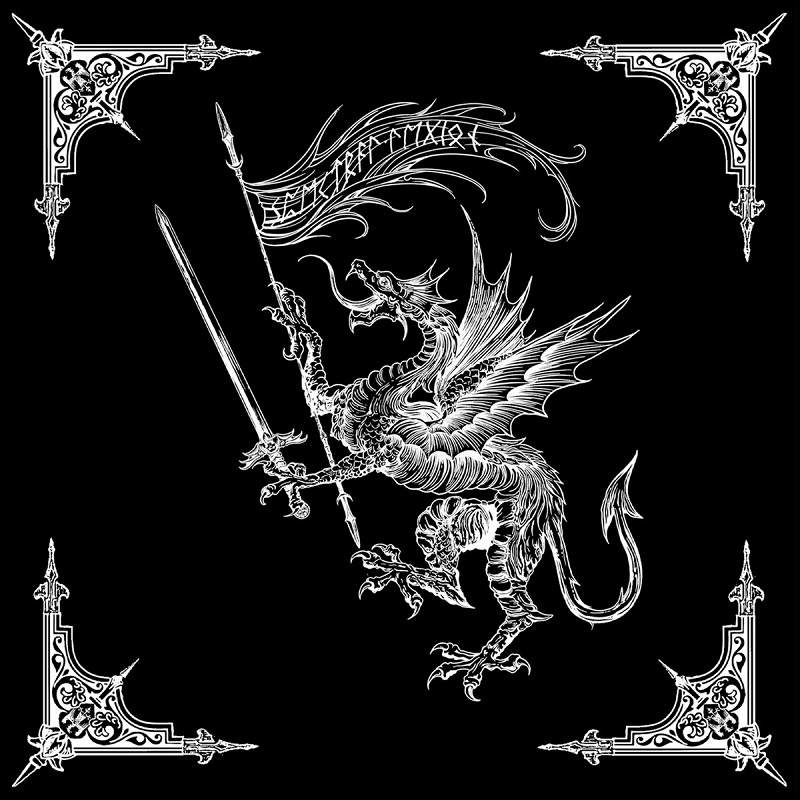
The metal scene in Chile is well known for being one of the most dedicated in all of the world. What was the response to Vindalf’s music in your home country, compared to the rest of the world. Are, or were you at any point a part of any circle/ community of musicians? If so, how would you describe the experience?
Chile is a country that has nothing to envy from others. Its proud landscapes stand at the same level as those of Europe or other foreign territories. Musically, it’s the same. Here in Chile, there is an enormous wealth of good projects, musicians, and bands, and as you rightly say, they are quite dedicated. Within the Chilean circle, specifically the metal world, listeners know how to appreciate different forms of art or any approach to black metal or metal in general. Painting, music, and even equally important works such as journalism or diffusion, be it fanzines or podcasts.
Fortunately, with Vindalf, the same thing happened. Within the general scene, even the underground, Vindalf was met with respect and considerable approval. To this day, Vindalf is featured in some top lists as a recognized band within Chilean black metal, according to the people, of course. I humbly appreciate that title.
On the other hand, outside the country, it hasn’t been very different; I would even say that it might be a little more so than here. I’ve heard from people in Poland, Germany, Estonia, even Japan and Greece, who consider Vindalf a good band, which is great, and it’s curious how it can spread to so many places, in a good way, of course. This is why I believe that both nationally and internationally, Vindalf has gained significant recognition.
Well, I have been in musical circles since I studied music and have been in several bands, all of which have taught me how important music is. At one point, I also participated in more underground diffusion media, such as fanzines and things like that. Currently, Vindalf has a more hidden internal circle of people who support the project: makeup artists, professional photographers, friendly bands, and close friends who saw this all come to life and have supported it from the beginning.
On a different note now, black metal has shifted and evolved in a lot of different directions over the years, with some newer bands not bearing much resemblance to its origins. Has this influenced your approach to creating music, and what is your opinion on the current state of black metal as a music genre? Would you say it has lost touch with its roots?
I believe that, unfortunately, black metal today has not only shed or forgotten some superficial and even aesthetic elements, but it has also discarded other, even more important things. Thanks to pathetic trends and, at times, treacherous social media, it has turned into a form of adolescent fashion, where some bands see this movement as a fun weekend hobby. Stupid apps have turned the style into music for immature children seeking attention, pretending to be “rebellious.”
Or underground bands that only seek monetary gain to achieve their longed-for “fame.” It truly seems pathetic to me. I’ve seen many bands and projects within the scene with drunken musicians who have become simple rock/glam bands with “makeup”. Of course, all the unnecessary modernism in black metal has influenced Vindalf. It has reinforced the idea of not forgetting the past and the true essence of what was meant to be represented in the early days, not forgetting what black metal truly is. For Vindalf, black metal is a declaration of war against false gods and the cross; it is the resurgence of shattered traditions, and I would rather be dead than be part of a trend or famous at the cost of becoming a pathetic man.
Something that is fairly common among musicians is perfectionism when it comes to their craft. How strict are you when it comes to your music, and what are the traits your music must have in order for you to be satisfied with it?
The truth is, I’m quite strict when it comes to composing. I constantly have to listen to a part or a track more than five times for it to be to my liking. I’ve canceled more than one track because it didn’t end up pleasing me, either in terms of its purpose or its sound.
As I mentioned, creating for Vindalf isn’t just about a track sounding good; there’s a deeper connection behind it. In the end, it’s a ritual that shouldn’t be incomplete or created quickly. Throughout my creation of albums, there have been many tracks that were discarded because they weren’t good enough, perhaps, to be part of an album or something like that. Each track on the released Vindalf albums represents something that has left an imprint on me, a true connection that made me feel in tune during its creation or that aligns with the deep aesthetic and essence I want to convey. Every melody, every atmosphere, and every lyrical work is the result of a deep connection and unification with the darkness, shaping a comfort that serves as the path to follow.
Well… Sometimes, simply liking how it sounds is enough.
Every musician has their own songwriting process, although similarities often seem to appear, particularly among different circles or scenes. How does your songwriting process look like, and is there anything you would consider uncommon about it?
The composition process for me is very variable. Sometimes, inspiration arises in any given moment, without warning, and other times, I am the one who calls it forth, deliberately forging the creation. For the last two albums, the creative process took place in long nocturnal sessions, sometimes by the light of a few candles; it was the perfect moment for me, when inspiration would arrive. I would pick up the guitar or keyboard and let the ideas flow, trying to shape something authentic that I considered worthy.
As for the lyrics, the emergence of each verse also had its own cycle, always born in the early cold days here in Chile, when the sun and warmth begin to fade. That melancholic and cold atmosphere, in the transition toward darkness and chill, becomes the perfect setting to shape the essence of my compositions, filling them with a depth that only the darkness of cold days could awaken. Sometimes, I would simply jot down ideas in a notebook and wander until I arrived at something concrete, before picking up an instrument.
For new music to exist, one must first be inspired by the past. What albums have inspired you the most over the years, and what gave them such an important place in your musical journey?
For quite some time, there have been albums that not only inspired me but have also been very important in my life. There are too many to count, but there are always a few that come to mind, not necessarily black metal.
Some of these are: the self-titled Ramones album, for a personal reason; Witchcraft Destroys Minds & Reaps Souls by Coven; Under a Funeral Moon; the self-titled Black Sabbath; Led Zeppelin III; Beethoven’s Ninth Symphony; Rumours by Fleetwood Mac; Minas Morgul by Summoning; In the Nightside Eclipse; and the complete opera Götterdämmerung by Richard Wagner, which I’ve been a fan of for as long as I can remember.
All of these share a story with me throughout my life, one that has been a general source of inspiration when reating. And there are many more I could mention, but it would take too long.
Coming to an end, I would like to thank you for doing this interview! Is there anything else you would like to add?
First of all, thank you very much for the recognition and the opportunity. Eternal honors to the unholy souls who keep the spirit and the ancient flame alive. Eternal gratitude to the dark and impure souls of Vindalf’s inner circle(E.L.I.C) and to the followers of the project for their endless support. DEATH AND ETERNAL LIFE. Death to the followers of the dead god and his false cross; may the dark banners wave in the skies.
By Ioana
Band
Bandcamp
Deezer
Instagram
Soundcloud
Spotify
YouTube
**Please support the underground! It’s vital to the future of our genre.**
#WeAreBlessedAltarZine
#TheZineSupportingTheUnderground
